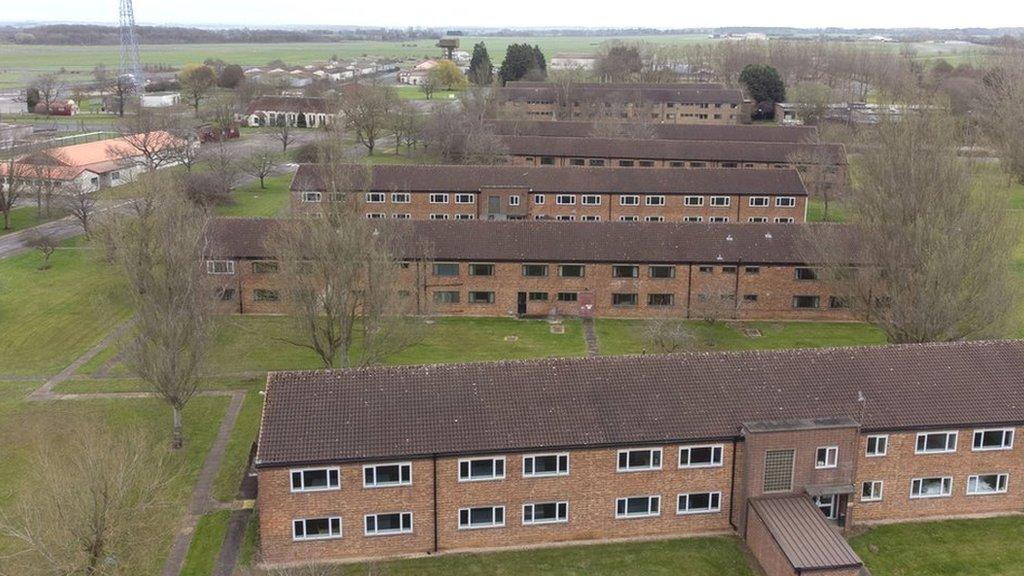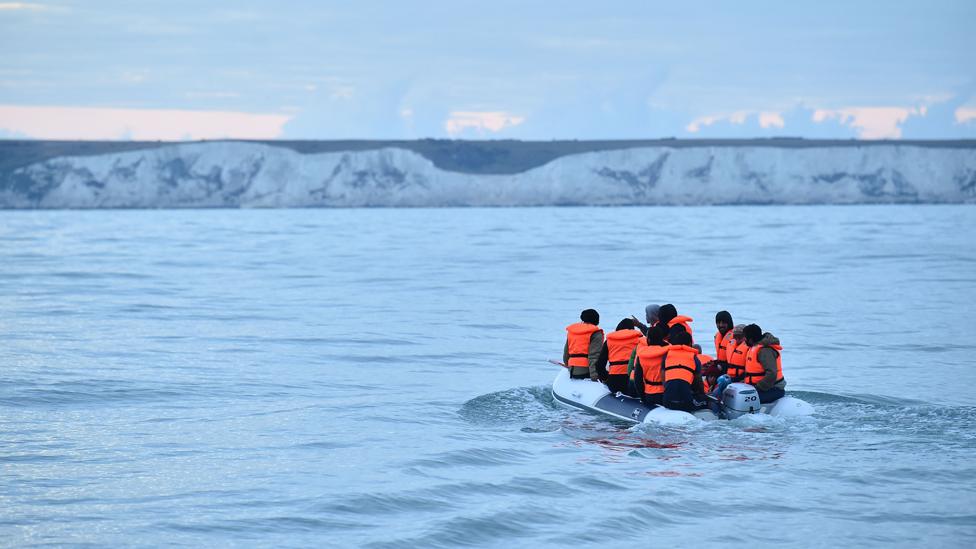Wethersfield: Protest at airbase to be used for asylum seekers
- Published
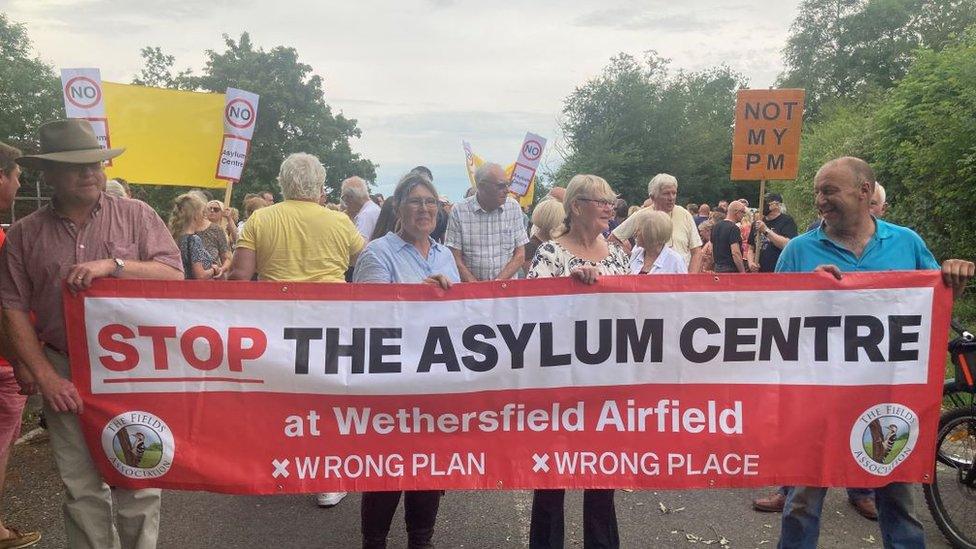
Some 150 people held a protest at a former RAF site where the government is to house 1,700 adult male migrants.
The demonstrators claimed MDP Wethersfield in rural Essex was not suitable for large-scale migrant housing.
The BBC understands the Home Office will begin placing men there from 11 July.
It means the centre will be the UK's largest asylum accommodation centre.
Braintree District Council recently lost an appeal to stop the plans.
The council had argued the proposals were a "flagrant breach" of planning laws and the location was too isolated.
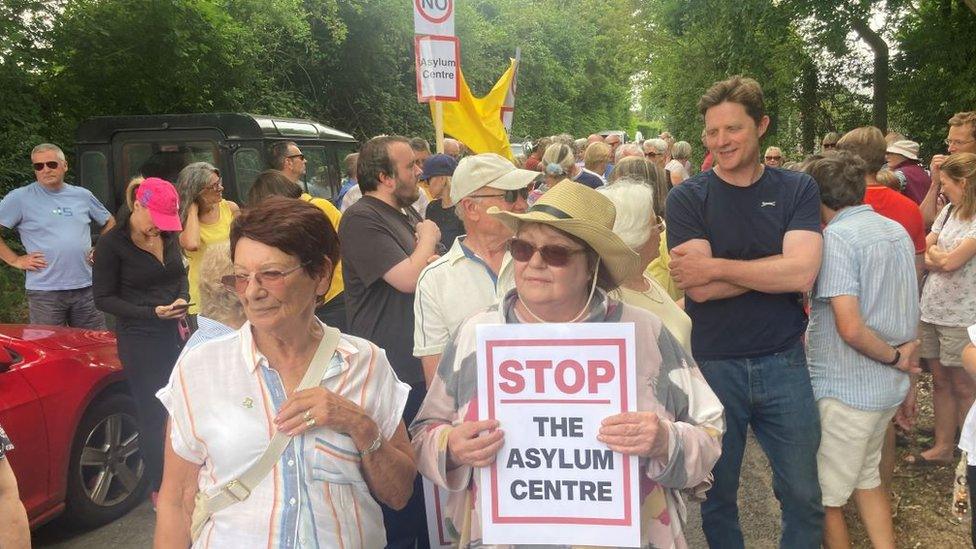
The 335-hectare site is 10 miles (16km) from the nearest railway station in Braintree.
The Home Office and MOD has previously said changing the use of government-owned land was justified under planning law because it would prevent an emergency which "threatens serious damage to human welfare".
However protesters told the BBC they feared the site will become a fully-fledged detention centre, the size of a large village.
Some people on the Saturday demonstration said, "it was not who they are, but how many there are".
"The people around Wethersfield and Finchingfield, the nearest towns, are very supportive of people who are fleeing for their lives from terrible situations," said Alan MacKenzie of Stop Wethersfield Airfield prison.
"But for the government to pick Wethersfield airbase which is in the middle of nowhere and wanting to put 1,700 young males there, it's totally disproportionate."
Christian Callander who lived nearby said: "Many are opposed to the government…this is their doing"
"They are describing it as an emergency. It's not an emergency. This (rising migrant numbers) has been happening for the past 15, 20 years. It's bad politics".
Tensions rose briefly when a group of some 10 people shouted "send them back to where they came from", "send them back to their own countries" and "we don't want them here".
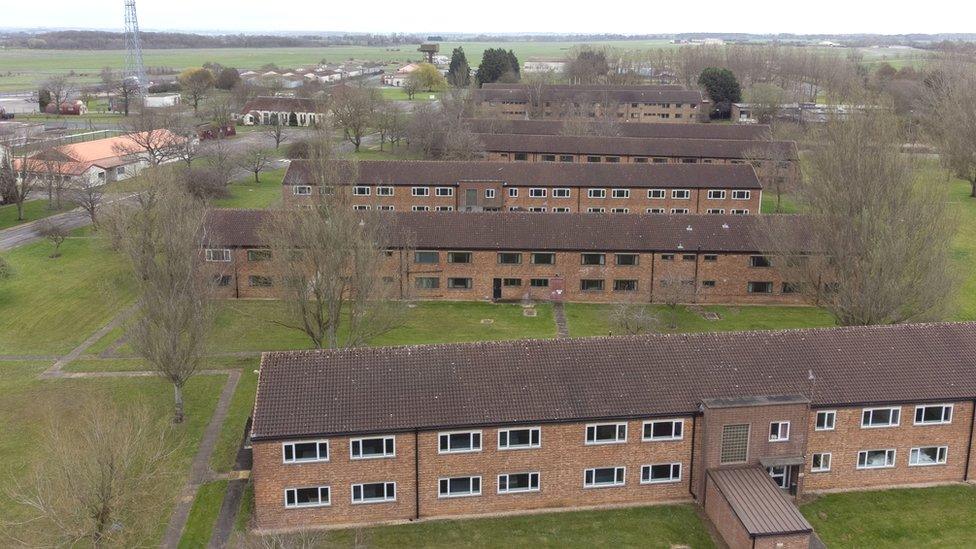
MDP Wethersfield in Essex is located about 10 miles from the nearest big town of Braintree
The Ministry of Defence (MoD)-owned land was one of the sites identified when immigration minister Robert Jenrick unveiled plans in March to house asylum seekers in disused military bases to reduce reliance on hotels.
The Home Office estimated there were 109,000 migrants - the highest level on record - in need of accommodation and support as of the end of March, including 48,000 being housed in hotels, at a total cost of £6.2m a day.
The High Court was told in April that Home Office operational plans are based on scenarios of up to 56,000 small boat arrivals in 2023, which would take the number of people needing accommodation and support to between 120,000 and 140,000.

Find BBC News: East of England on Facebook, external, Instagram, external and Twitter, external. If you have a story suggestion email eastofenglandnews@bbc.co.uk, external
Related topics
- Published23 June 2023
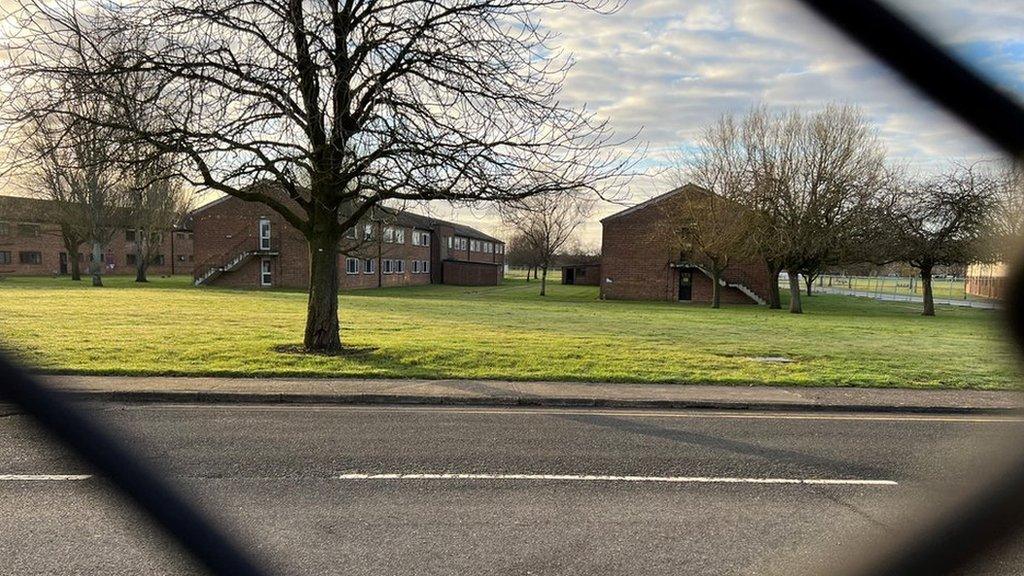
- Published23 June 2023
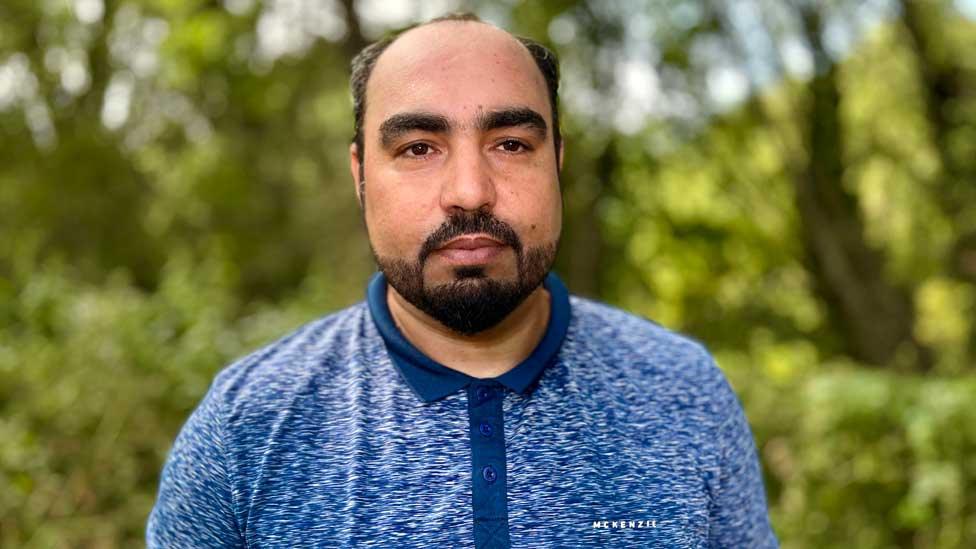
- Published11 May 2023
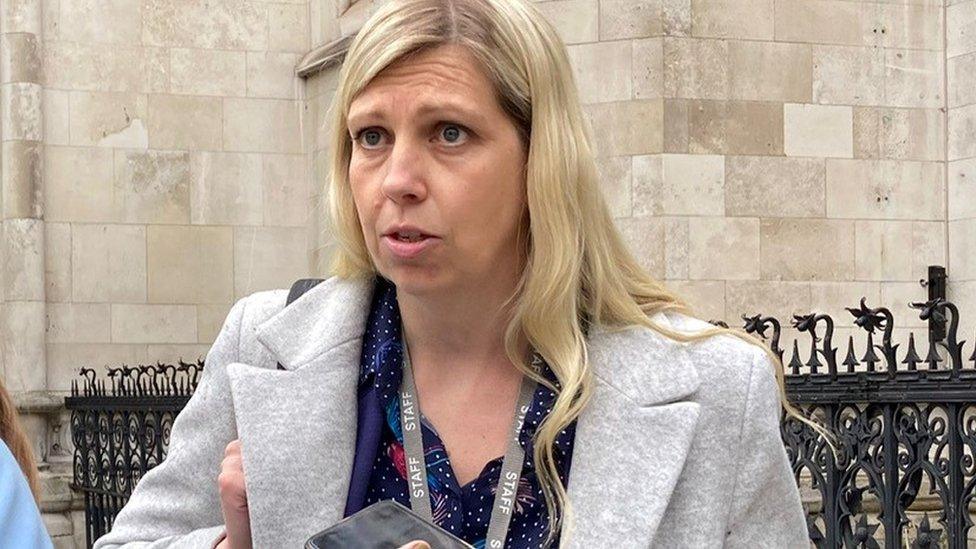
- Published28 April 2023

- Published13 December 2023
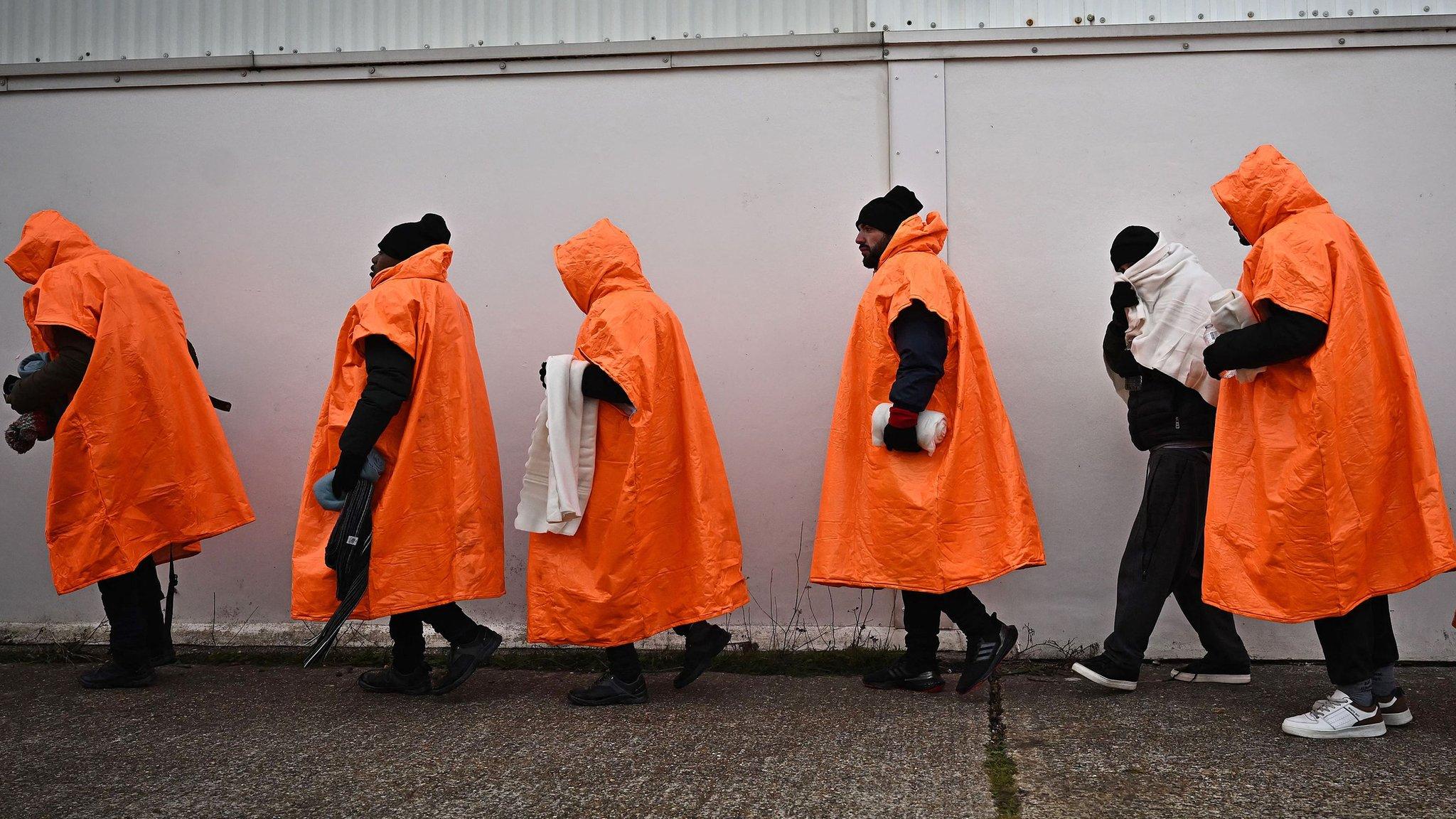
- Published27 April 2023

- Published21 April 2023
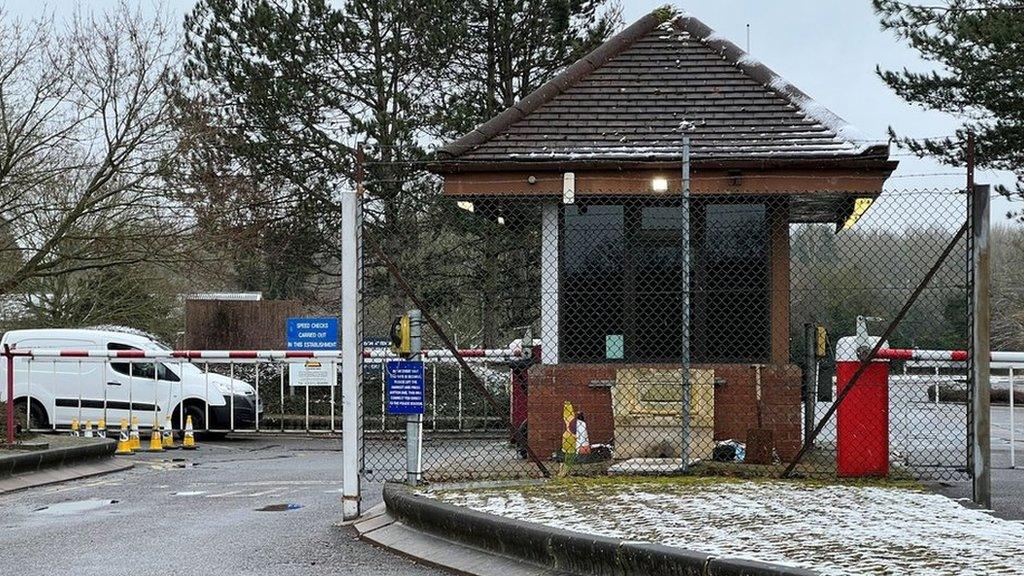
- Published19 April 2023
